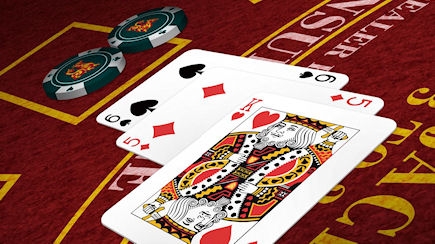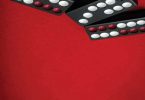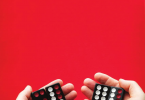This article first appeared in the Mar/Apr 2013 issue of World Gaming magazine.
One of the most exciting and profitable moves in blackjack is the double down. We explain when to go for it, and when it’s better to just hit your hand.

Blackjack is an interesting game as players get to make meaningful decisions that affect their chances of winning as their hand plays out. The most important of these decisions is whether to hit or stand on a hand, but there are also more intricate decisions, such as insurance, surrender, splitting pairs and the most exciting of all: the double down. Players love doubling because they generally do it when they have the advantage, and it offers the opportunity to win twice what was originally anticipated. A typical dream scenario goes like this: your first two cards total 11, a great hand, against the dealer’s weakest upcard, a 6. At this precise moment, you are a very strong favorite, slightly more than twice as likely to win, as you are to lose. It’s a perfect opportunity to double your bet. It’s almost like making a bet after you’ve seen the result!
A lot of players fall in love with doubling. But there is a downside that players often forget: when you double you receive one more card only. You must stand on your three-card hand, with no opportunity to draw subsequent cards. Sometimes this can be quite disadvantageous. For example, what if you double your two card 9 and receive a 2! Now you have to stand on 11, a truly horrible proposition.
There are times when there is essentially no disadvantage at all in doubling. Let’s get back to that 11 against the dealer’s 6. Can you ever see yourself wanting to draw a fourth card? Even you receive an ace on your 11, for a total of just 12, you are going to want to stand.
The soft double
Most players know to almost always double when they have a total like 10 or 11 (and, to a much lesser extent, 9). This is intuitive, since the shoe is stacked with ten-value cards, and a third card on a two-card 10 or 11 often results in great totals like 20 or 21. But far less intuitive is the soft double, which is a double when you have an ace with a card valued between 2 and 9. In this case, you’re not so much doubling in the hope of getting a great hand yourself, but more because the dealer has a relatively high chance of going bust – so you want to get more money on the table.
No matter how weak the dealer’s upcard, he is never more than a 50 percent chance of going bust. But when you add in the ways of winning without the dealer going bust, it often makes sense to double a soft total of 18 (A7) or less against dealer upcards of 6 or less. The lower your soft total or the lower the dealer upcard, the less likely it is that you should soft double.
Surprising results
In the blackjack games in Macau (and in many other parts of the world), if you double and the dealer gets blackjack, you only lose the original bet you placed, and not the extra money placed on the layout for doubling. While this may seem counter-intuitive, in fact it makes perfect sense when you realize in the original blackjack games the dealer received a hole card as well as his upcard. If these two cards were a blackjack, the hand was over before the players ever got an opportunity to split or double. When this lose-original-bet-only rule prevails (as it does in Macau), it is in fact correct to double two-card totals of 11 against dealer upcards of 10. Many players find this result surprising, since it’s pretty scary to be doubling against a 10.
Another surprising result is doubling 9 against a dealer’s upcard of 2. Now a 2 seems a pretty innocuous card and a player 9 versus a dealer 2 does represent a 7 percent advantage to the player, but the downside of possibly getting a 2 on your 9 and having to suffer the dreadful result of standing on 11 tips the scales in favor of just hitting your 9 rather than doubling. A dealer 2 is not as weak as it might seem and many players are surprised to learn the dealer is more likely to get a non-blackjack 21 from a 2 than any other upcard!







